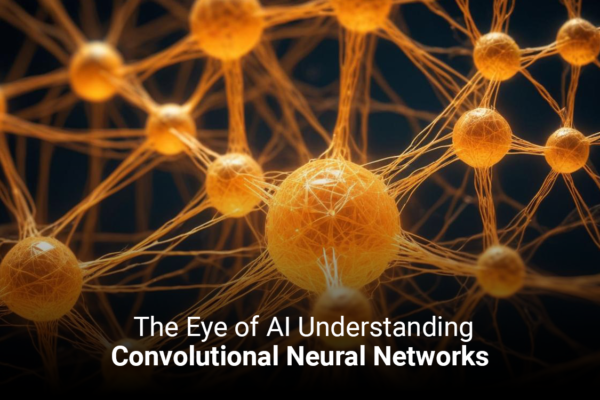AI has swiftly emerged from the realm of science fiction to become an integral part of our everyday lives. It powers our search engine, recommends what you watch and buy, assists doctors in medical diagnosis, and even drives our cars. As AI has been woven into the fabric of our daily existence, it brings many ethical, legal, and regulatory challenges that demand thoughtful and proactive solutions.
In the age of technological convergence, the question of how to regulate AI is not just a legislative concern; it is a question that implicates the very fabric of our society, the functioning of our economies, and the preservation of our rights and values. It demands informed engagement and adaptable regulations to ensure that we harness the full potential of AI while remaining accountable for its consequences.
The Global Mosaic of AI Regulations
The AI ecosystem’s diverse applications have spurred nations to grapple with the need for oversight and control. Here is a comparative look at international approaches:
United States
Historically, the US has embraced a light-touch regulatory approach to foster innovation. Agencies like the FDA (for healthcare AI) and the FTC (for consumer protection) have issued guidelines and taken enforcement actions, but comprehensive AI legislation is still evolving.
European Union
The EU has positioned itself as a global leader in AI regulation. The General Data Protection Regulation (GDPR) and the proposed Artificial Intelligence Act (AIA) are central to shaping the EU’s AI policy. The AIA seeks to provide a framework for AI regulation across sectors.
Canada
Canada has adopted a principal-based approach, emphasizing transparency, accountability, and human rights in its guidelines and policies for AI development.
Singapore
Singapore has taken a proactive stance by establishing a Model AI Governance Framework and AI Ethics and Governance Initiatives. These Initiatives guide you in deploying AI responsibly.
The Role of Stakeholders in Navigating AI Regulations
The landscape of AI regulations is intricate and ever-evolving, and effective navigation requires the active involvement of various stakeholders.
Government & Policymakers
Government and policymaker’s responsibilities encompass crafting and enforcing regulations that address the multifaceted challenges posed by AI. It entails staying abreast of rapid technological advancements and assessing AI’s ethical, legal, and societal implications.
Striking a balance between fostering innovation and protecting public interests is paramount, as it must ensure that regulations neither stifle technological progress nor neglect potential harm. Furthermore, policymakers play a critical role in defining ethical boundaries for AI systems establishing guidelines that promote fairness, transparency, and accountability in AI development and deployment.
Tech Industry
The tech industry plays a central role in the landscape of AI regulations. Tech businesses are taking proactive steps to self-regulate AI technologies by establishing internal guidelines and standards, emphasizing ethical considerations and accountability. Collaboration with regulators is another crucial facet of the tech industry’s involvement, as they provide valuable expertise to policymakers, helping shape regulations that align with the rapid advancements of AI.
Moreover, building trust among users by prioritizing responsible AI development, including measures to mitigate bias and ensure data privacy. As key stakeholders, these actions are vital in shaping a future where AI technologies are harnessed for the benefit of society while being held accountable for their impact.
Civil Society & Academia
Civil societies and advocacy groups actively raise awareness about AI’s ethical and societal implications, pushing for regulations that focus on the well-being of individuals and communities. They often act as watchdogs, monitoring compliance with AI regulations and holding government and tech companies accountable.
On the other hand, academia contributes by conducting research, providing expert guidance, and fostering discussions on AI’s impact and regulatory needs. They uncover potential risks and offer insights into areas where regulation plays a vital role in shaping the development of responsible AI technologies. Together, they provide the necessary balance of ethical AI regulations aligning with the broader interests of society.
International Collaboration for Harmonized AI Regulations
AI knows no borders, and as it continues to expand globally, the need for international cooperation becomes increasingly evident:
The Need for Global Standards
The cross-border nature of AI necessitates harmonized standards to avoid regulatory fragmentation, inefficiencies, and compliance challenges for multinational organizations. Moreover, common international standards can help ensure that AI is developed with ethical principles, preventing scenarios where different regions adopt disparate ethical approaches to AI. It fosters innovation by providing clarity for you and investors, promoting cross-border collaboration in AI research and development, and maintaining that they are applied ethically and respect shared values and principles.
Promoting Dialogue & Collaboration
International organizations such as the United Nations (UN), the World Trade Organization (WTO), and the Organization for Economic Cooperation and Development (OECD) play instrumental roles in facilitating these conversations. They provide platforms for sharing best practices, developing guidelines, and building consensus on overarching principles. Additionally, bilateral and multilateral agreements among countries can establish common ground. Public-private partnerships, where governments work hand-in-hand with tech companies, leverage valuable expertise, and provide a practical bridge between industry innovation and regulatory compliance.
Conclusion
As we move forward, it is crucial to remember that the journey of AI regulation is ongoing. Technology evolves at an unprecedented pace, and ethical considerations continue to emerge. Therefore, our regulatory framework must be agile, responsive, and adaptable to accommodate future advancements and moral insights. In this endeavor, every stakeholder plays a crucial role. Ultimately, we can collectively ensure that AI regulations serve the greater good and uphold our shared values.























